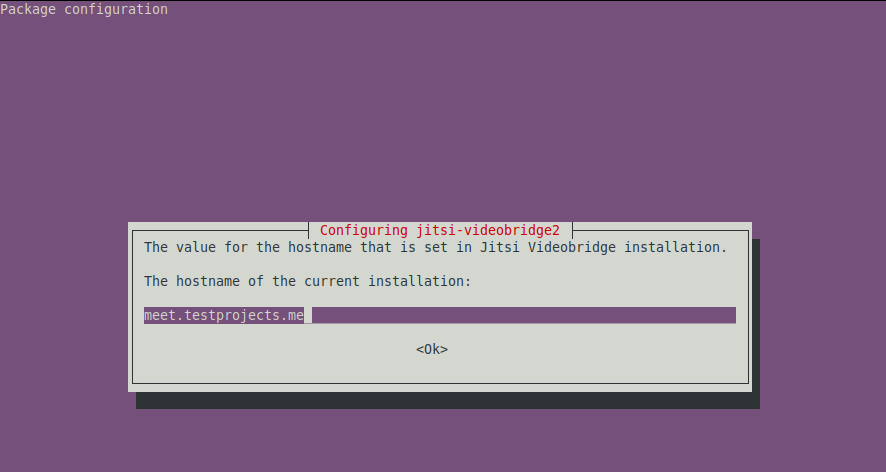
Mapping your Jitsi Meet server’s domain name to 127.0.0.1 allows your Jitsi Meet server to use several networked processes that accept local connections from each other on the 127.0.0.1 IP address. The following command will set the current hostname and modify the /etc/hostname that holds the system’s hostname between reboots: Jitsi Meet uses both of these settings when it installs and generates its configuration files.įirst, set the system’s hostname to the domain name that you will use for your Jitsi instance. In this step, you will change the system’s hostname to match the domain name that you intend to use for your Jitsi Meet instance and resolve that hostname to the localhost IP, 127.0.0.1. When more than two clients are present then call data is routed through the Jitsi Meet server. The jump in resource use between two and three participants is because Jitsi will route the call data directly between the clients when there are two of them. The following benchmark information was collected from a single-core virtual machine using high-quality video settings: When you are choosing a server to run your Jitsi Meet instance you will need to consider the system resources needed to host conference rooms. Throughout this guide, the example domain name jitsi.your-domain is used.
#Jitsi meet nginx how to#
You can learn how to point domains to DigitalOcean Droplets by following the How To Set Up a Host Name with DigitalOcean tutorial.

After you have created the conference room, any users can join, as long as they have the unique address and the optional password.īefore you begin this guide you’ll need the following: This is not ideal for a server that is publicly available on the internet so you will also configure Jitsi Meet so that only registered users can create new conference rooms. The default configuration allows anyone to create a new conference room.
#Jitsi meet nginx install#
In this tutorial, you will install and configure a Jitsi Meet server on Ubuntu 18.04. With Jitsi you can be sure that your private information stays that way. The benefit of a Jitsi conference is that all your data only passes through your server, and the end-to-end TLS encryption ensures that no one can snoop on the call. A Jitsi Meet server provides multi-person video conference rooms that you can access using nothing more than your browser and provides comparable functionality to a Zoom or Skype conference call.

Jitsi Meet is an open-source video-conferencing application based on WebRTC. The author selected the Open Internet/Free Speech Fund to receive a donation as part of the Write for DOnations program.


 0 kommentar(er)
0 kommentar(er)
